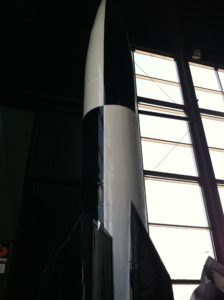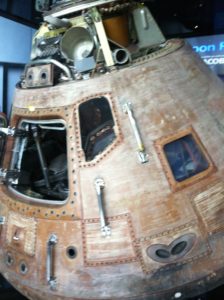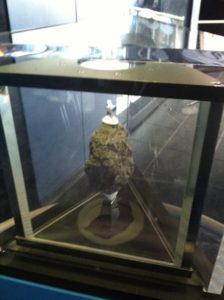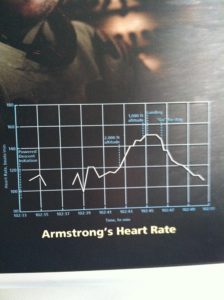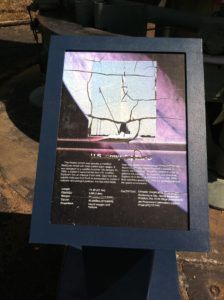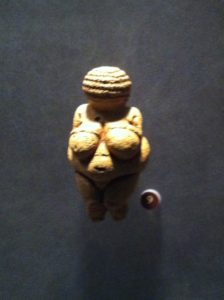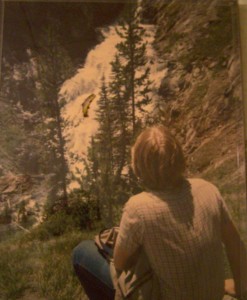As I look back over the entries I have made in this blog, I am struck by a pattern. I have written about nature and travel and friends and family and gardening and geography and politics and getting abducted by a Chinese submarine while skin diving. Recently, I discovered on my blog setup page that I could tag topics or items of interest to advertise the individual blog posts on the home page. You will see this as what they call a “Tag cloud” along the right side of the home page. When I use a “tag” that word appears in the tag cloud and, if I use that tag on multiple blogs, that tag becomes larger in the tag cloud. As you can see, there is one tag in my tag cloud that sticks out prominently.
It shouldn’t surprise me, I guess, to see philosophy play an important role in my writing. I have always been interested in philosophy in one way or another. When I reflect on the writing I have done, I suspect nearly every blog post should include the tag “Philosophy.” I took courses on the subject in college, of course, and “studied” Mill and Hume and Sartre and Plato and Nietzsche and Freud. But looking further back, I think I have always been interested in what things are and what things mean and, of course, what to do about them. With apologies to David Hume, Philosophy is, to me, “how to derive an ought from an is.” The fun thing about philosophy is that no one agrees about the oughts and in fact, no one even agrees about the is’s.
There is philosophy everywhere, I think, and I suspect nearly everyone is an amateur philosopher. The other fun thing about philosophy is that everyone who does it, even the professional philosophers, are really amateur philosophers.
There is a philosophy to flying airplanes. To an airline pilot that encompasses many things. It involves, in my case, a striving for “smoothness.” That means more than keeping the aircraft straight and level and trying to “grease” the landings. It means running an organized and “effortless-looking” cockpit. It means trying to learn about your crew and their differences so that you can best utilize their strengths and mitigate their weaknesses. It means trying to be on time, when you can, and trying to be safe always. It means making hundreds of judgements a day and dedicating yourself to making them based on the best information available and in a calm, dispassionate way. Will I attain the results my philosophy calls for every day? Of course not. But I will try and I will be guided by my philosophy and I will feel a pang of guilt if I fail to live up to it.
Every profession calls for philosophy. There is no endeavor, I think, so menial or unappreciated that it cannot benefit from a philosophy. Whether you are the President of the United States or the guy that cleans the toilets at O’Hare, it behooves one to have a philosophy and it behooves us all to respect the guy who has one. Our society is greatly enhanced when the guy who cleans the toilets at O’Hare believes in his work, feels valued, and wants to do his job well. We must honor that.
I don’t trust a person who lacks a philosophy. Anyone who has not considered, seriously, the ramifications and meaning of his work is foolhardy at best and a danger at worst. Whether you fly airplanes, sew quilts or erect skyscrapers what you do is important and “requires” an ethic; that ethic gives dignity to your work and makes your life worthwhile.
Since I’m thinking along these lines anyway and, after all, my blog is called stuffiminterestedin, I think I may include, in the next few posts, some more direct thoughts I have had about philosophy and what it means to me. For those of you whose eyes are glazing over already, I promise I won’t be quoting Schopenhauer or Ayn Rand (Eww!) but I may well quote some others who are more easily digested. As always, please feel free to contribute your opinions. I love talking about and thinking about and even arguing about philosophy.
My first post along this line is one I call “My Father Hates Thoreau.” It is an effort to examine “happiness” and how it can be achieved by looking for insights from people I respect.
My Father Hates Thoreau
My father hates Thoreau. This surprised me at first. All his life, my father has loved the outdoors. He has always been independent minded and is every bit the free-thinker that Thoreau was. He revels sometimes in going against the grain and taking contrary positions. He has always lived a self-reliant, somewhat minimalist lifestyle. Thoreau should have been a perfect fit. But when I, for the first time, loaned him my copy of Walden he returned it later with a complaint. “I thought I would like this,” he said, “but Thoreau was a jerk!”
And so he was. It is hard to read Walden, or some of his other work, without concluding that Henry David Thoreau might have been one of those people you would try to avoid in your daily life. He was obviously arrogant. He was self-absorbed. He was abrupt and direct and tactless. In my father’s apt description, he was a jerk. Yet I still imagined that, looking past Thoreau’s harsh rhetoric of trees, a man like my father would find much philosophical forest to agree with. Having read Walden many times myself, I frequently go away with a sense of longing- longing for simplicity and the courage to embrace Thoreau’s ideas in a material way. I find much truth in that book.
Still, I see why some would not be able to tolerate the haughty style. I think I know just the passage that sealed Thoreau’s fate with my Father. It was in the first chapter, Economy:
Practically, the old have no very important advice to give the young, their own experience has been so partial, and their lives have been such miserable failures, for private reasons, as they must believe; and it may be that they have some faith left which belies that experience, and they are only less young than they were. I have lived some thirty years on this planet, and I have yet to hear the first syllable of valuable or even earnest advice from my seniors. They have told me nothing, and probably cannot tell me anything to the purpose. Here is life, an experiment to a great extent untried by me; but it does not avail me that they have tried it. If I have any experience which I think valuable, I am sure to reflect that this my mentors said nothing about.
I think Thoreau’s point here is that the world is new for each of us and we must live it ourselves. The young must make their own mistakes, not simply as a reproach to their elders’ advice, but because “their world” has never been experienced by anyone before. This meaning is obscured, though, because Thoreau does seem to carry with him a personal animus to the old that he wears on his sleeve. His words betray an old wound he suffered from an elder.
I’m in both camps on this one. I am pretty sure, having seen what I have seen of this world, that there is no one way to live. I’m glad that’s so. Yet, I find a persuasive case to be made for the value of my elders’ experience. I believe I learned much of value from my father and grandfather. Furthermore, I learned things of great value from Thoreau, who is quite obviously my elder. I would be hard pressed to say that I know, in the present tense, what to do with such advice as these sages gave me. Still, I think it’s accumulation over time helped me to make better decisions, when I heeded it.
Be it Thoreau, or Buddha, or my dad, we come back always to the question of how to live. That is what Walden is about. All literature is about that topic really. All movies are. All paintings, too. Furniture, clothes, the way one man shovels the snow off his driveway, the way a girl braids her hair, these are all answers to the question “How should we live?”
It is reckoned that about 106 Billion people have lived on this planet since Homo Sapiens evolved. Though there has been some fleeting consensus from time to time, no one has definitively answered that question. It seems unlikely that anyone ever will. It is hard to answer that question for yourself. It is trouble when you try to answer it for someone else. Really, all the war and bloodshed we have ever known was about one group trying to tell another group how to live. That’s what religion is about, I think.
So how should we live? Thoreau would say honestly and simply. That seems about as good a piece of advice as we are likely to get. I’m certain my father would add his voice to this. Yet, there are many to whom that advice is obvious anathema. There are people who live amazingly complicated lives and seem to be happy.
If the goal is happiness, we could be democratic about it. Let’s vote on what makes us happy. A natural question presents itself. Is pursuing happiness the best way to live? For purposes of this discussion I will take for granted the fundamental utilitarian principle of Jeremy Bentham that happiness, presumably the most happiness for the greatest number of people, is a worthwhile goal. How to get there is the question. Ignoring Thoreau, I look to my elders here for advice. I have assembled quotes from many renowned people suggesting strategies for achieving happiness. These tend to fall into a number of loosely defined categories which I call: Work, Giving to Others, Family and Friends, Attitude, Contrast, Being Satisfied, Not Being Satisfied, Living Honestly and Sincerely, Serendipity, and I Don’t Know.
Try these axioms on to see if they fit (or perhaps you will not agree to call them axioms).
WORK:
If you want to be happy, set a goal that commands your thoughts, liberates your energy, and inspires your hopes.
– Andrew Carnegie
If you observe a really happy man you will find him building a boat, writing a symphony, educating his son, growing double dahlias in his garden. He will not be searching for happiness as if it were a collar button that has rolled under the radiator.
– W. Beran Wolfe
Success is not the key to happiness. Happiness is the key to success. If you love what you are doing, you will be successful.
– Albert Schweitzer
What is happiness; to be dissolved into something completely great.
– Willa Cather
Many people have a wrong idea of what constitutes true happiness. It is not attained through self-gratification, but through fidelity to a worthy purpose.
– Helen Keller
Action may not always bring happiness, but there is no happiness without action.
– Benjamin Disraeli
The true way to render ourselves happy is to love our work and find in it our pleasure.
– Francoise de Motteville
To fill the hour — that is happiness.
– Ralph Waldo Emerson
The Grand essentials of happiness are: something to do, something to love, and something to hope for.
– George Burnap
If thou workest at that which is before thee, following right reason seriously, vigorously, calmly, without allowing anything else to distract thee, but keeping thy divine part pure, as if thou shouldst be bound to give it back immediately; if thou holdest to this, expecting nothing, fearing nothing, but satisfied with thy present activity according to Nature, and with heroic truth in every word and sound which thou utterest, thou wilt live happy. And there is no man who is able to prevent this.
– Marcus Aurelius
We act as though comfort and luxury were the chief requirements of life, when all that we need to make us really happy is something to be enthusiastic about.
– Charles Kingsley
Existence is a strange bargain. Life owes us little; we owe it everything. The only true happiness comes from squandering ourselves for a purpose.
– William Cowper
GIVING TO OTHERS:
Happiness comes when your work and words are of benefit to yourself and others.
– Buddha
Happiness cannot come from without. It must come from within. It is not what we see and touch or that which others do for us which makes us happy; it is that which we think and feel and do, first for the other fellow and then for ourselves.
– Helen Keller
If you want others to be happy, practice compassion. If you want to be happy, practice compassion.
– Tenzin Gyatso
14th Dalai Lama
Those who bring sunshine into the lives of others, cannot keep it from themselves.
– James M. Barrie
There is a wonderful mythical law of nature that the three things we crave most in life — happiness, freedom, and peace of mind — are always attained by giving them to someone else.
– Peyton Conway March
Happiness is not so much in having as sharing. We make a living by what we get, but we make a life by what we give.
– Norman MacEwan
When you have once seen the glow of happiness on the face of a beloved person, you know that a man can have no vocation but to awaken that light on the faces surrounding him; and you are torn by the thought of the unhappiness and night you cast, by the mere fact of living, in the hearts you encounter.
– Albert Camus
Love is a condition in which the happiness of another person is essential to your own.
– Robert Heinlein
I don’t know what your destiny will be, but one thing I do know: the only ones among you who will be really happy are those who have sought and found how to serve.
– Albert Schweitzer
FAMILY/ FRIENDS:
The happiest moments of my life have been the few which I have passed at home in the bosom of my family.
– Thomas Jefferson
The most I can do for my friend is simply to be his friend. I have no wealth to bestow on him. If he knows that I am happy in loving him, he will want no other reward. Is not friendship divine in this?
– Henry David Thoreau
ATTITUDE:
Each morning when I open my eyes I say to myself: I, not events, have the power to make me happy or unhappy today. I can choose which it shall be. Yesterday is dead, tomorrow hasn’t arrived yet. I have just one day, today, and I’m going to be happy in it.
– Groucho Marx
Most people are about as happy as they make up their minds to be.
– Abraham Lincoln
The basic thing is that everyone wants happiness, no one wants suffering. And happiness mainly comes from our own attitude, rather than from external factors. If your own mental attitude is correct, even if you remain in a hostile atmosphere, you feel happy.
– Tenzin Gyatso
14th Dalai Lama
People spend a lifetime searching for happiness; looking for peace. They chase idle dreams, addictions, religions, even other people, hoping to fill the emptiness that plagues them. The irony is the only place they ever needed to search was within.
– Ramona L. Anderson
The greatest part of our happiness depends on our dispositions, not our circumstances.
– Martha Washington
The mind is its own place, and in itself, can make heaven of Hell, and a hell of Heaven.
– John Milton
CONTRAST:
There is neither happiness nor misery in the world; there is only the comparison of one state to another, nothing more. He who has felt the deepest grief is best able to experience supreme happiness. We must have felt what it is to die, that we may appreciate the enjoyments of life.
– Alexandre Dumas
Even a happy life cannot be without a measure of darkness, and the word happy would lose its meaning if it were not balanced by sadness. It is far better take things as they come along with patience and equanimity.
– Carl Jung
There are as many nights as days, and the one is just as long as the other in the year’s course. Even a happy life cannot be without a measure of darkness, and the word ‘happy’ would lose its meaning if it were not balanced by sadness.
– Carl Jung
Happiness is the interval between periods of unhappiness.
– Don Marquis
BEING SATISFIED:
Gratefulness is the key to a happy life that we hold in our hands, because if we are not grateful, then no matter how much we have we will not be happy — because we will always want to have something else or something more.
– David Steindl-Rast
Unhappiness is best defined as the difference between our talents and our expectations.
– Edward de Bono
The world has to learn that the actual pleasure derived from material things is of rather low quality on the whole and less even in quantity than it looks to those who have not tried it.
– Oliver Wendell Holmes
You can never get enough of what you don’t need to make you happy.
– Eric Hoffer
The perfection of wisdom, and the end of true philosophy is to proportion our wants to our possessions, our ambitions to our capacities, we will then be a happy and a virtuous people.
– Mark Twain
That man is richest whose pleasures are cheapest.
– Henry David Thoreau
Being happy doesn’t mean that everything is perfect. It means that you’ve decided to look beyond the imperfections.
-Unknown
A man should always consider how much he has more than he wants, and how much more unhappy he might be than he really is.
– Joseph Addison
The greatest happiness you can have is knowing that you do not necessarily require happiness.
– William Saroyan
Even if we can’t be happy, we must always be cheerful.
– Irving Kristol
Knowledge of what is possible is the beginning of happiness.
– George Santayana
Happiness comes fleetingly now and then, To those who have learned to do without it and to them only.
-Don Marquis
NOT BEING SATISFIED:
To be without some of the things you want is an indispensable part of happiness.
– Bertrand Russell
LIVING HONESTLY AND SINCERELY:
But what is happiness except the simple harmony between a man and the life he leads?
– Albert Camus
Happiness is when what you think, what you say, and what you do are in harmony.
– Mohandas K. Gandhi
The happiness that is genuinely satisfying is accompanied by the fullest exercise of our faculties and the fullest realization of the world in which we live.
– Bertrand Russell
Wisdom is the supreme part of happiness.
– Sophocles
SERINDIPITY:
Happiness often sneaks in through a door you didn’t know you left open.
– John Barrymore
Fate often puts all the material for happiness and prosperity into a man’s hands just to see how miserable he can make himself with them.
– Don Marquis
I DON’T KNOW:
It is an illusion that youth is happy, an illusion of those who have lost it.
– W. Somerset Maugham
The pursuit of happiness is a most ridiculous phrase, if you pursue happiness you’ll never find it.
– C. P. Snow
Happiness is as a butterfly which, when pursued, is always beyond our grasp, but which if you will sit down quietly, may alight upon you.
– Nathaniel Hawthorne
The truth is that our finest moments are most likely to occur when we are feeling deeply uncomfortable, unhappy, or unfulfilled. For it is only in such moments, propelled by our discomfort, that we are likely to step out of our ruts and start searching for different ways or truer answers.
– M. Scott Peck
There is no duty we so underrate as the duty of being happy. By being happy we sow anonymous benefits upon the world.
– Robert Louis Stevenson
We all live with the objective of being happy; our lives are all different and yet the same.
– Anne Frank
Sanity and happiness are an impossible combination.
– Mark Twain
Independence is happiness.
– Susan B. Anthony
Happiness is nothing more than good health and a bad memory.
– Albert Schweitzer
It is only possible to live happily ever after on a day to day basis.
– Margaret Bonnano
It’s pretty hard to tell what does bring happiness. Poverty an’ wealth have both failed.
– Kin Hubbard
Why not let people differ about their answers to the great mysteries of the Universe? Let each seek one’s own way to the highest, to one’s own sense of supreme loyalty in life, one’s ideal of life. Let each philosophy, each world-view bring forth its truth and beauty to a larger perspective, that people may grow in vision, stature and dedication.
– Algernon Black
Happiness is a mystery like religion, and it should never be rationalized.
– G. K. Chesterton
Sooooooo,
work hard at something that interests you, give of yourself to others, maintain a good attitude, enjoy a change of scenery from time to time, appreciate what you have, and live honestly and sincerely and you will find happiness – if you are lucky. Heck, it’s crazy enough that it just might work.
P.S.. You didn’t really think I was going to tell you the meaning of life, did you?
Dustin Joy (With help from the Dalai Lama, Hellen Keller, and Mark Twain)


